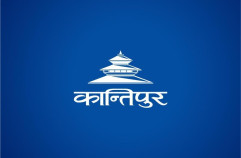Sultian Maoist strife in the Far West

We use Google Cloud Translation Services. Google requires we provide the following disclaimer relating to use of this service:
This service may contain translations powered by Google. Google disclaims all warranties related to the translations, expressed or implied, including any warranties of accuracy, reliability, and any implied warranties of merchantability, fitness for a particular purpose, and noninfringement.

Highlights
- Provincial MPs say: The problem is due to the dual role of President Dahal



As the dispute and mutual bitterness within the Far West Parliamentary Party deepened, President Pushpa Kamal Dahal and General Secretary Dev Gurung gave written instructions to the Parliamentary Party to make Khagraj Bhatt the leader of the party. The directive given on June 12 is still in abeyance.

The Maoist conflict that started in the Far West due to the back-and-forth between parliamentarians and the scramble to get positions of various benefits is deepening instead of being resolved. The leaders of the Maoist Provincial Committee say that the dual role of Chairman Dahal and the maneuvering of different factions of the top leaders are the main reasons for the conflict not to be resolved. In Far West too, there are separate factions of Narayankaji Shrestha, Varshman Pun and Janardan Sharma.
Khagraj Bhatt, who was the leader of the parliamentary party, was removed by the majority MPs of the Maoist center on 080 Jan 12. Chairman of the Maoist Center Parliamentary Party deputy leader Akkal Bahadur Rawal, which has 11 MPs including the speaker, 6 members decided to remove Bhatt from the post and make Man Bahadur Dhami the leader of the party . The MPs Akkal Bahadur Rawal, Man Bahadur Dhami, Shivsingh Oli, Om Vikram Bhat, Geethadevi Mal and Lakshmi Vick were in the decision to remove Bhatt from the leadership of the party.
Four MPs were absent from the meeting. Khagraj Bhatt, Ramesh Singh Dhami, Jhapta Bahadur Saund and Jankidevi Kunwar were absent. At that time, Saund was the Minister of Social Development and Dhami was the Minister of Industry, Tourism, Forest and Environment . Dhami, who was the leader of the party by the majority, was automatically recognized as the leader of the party in the provincial assembly. From that point, the conflict within the Maoist center in the Far West has become widespread. The dispute is still where it is.
Before the election, the Maoist Center said that Khagraj Bhatt would be promoted as the Chief Minister of Far West, so Bhatt, a member of the Provincial Assembly, was not able to be elected as the leader of the parliamentary party in the Far West Province Assembly. He was elected as the leader of the Sudurpaschim Province Assembly Parliamentary Party on 17th January 2017.
Bhatt, who was elected to the state assembly from Dadeldhura 1 (1), was the only leader at that time who was the highest-ranking permanent committee member from Far West. So he was also in charge of this province. At the beginning of the meeting that lasted for two days to select the leader of the parliamentary party, another MP Om Vikram Bhat also claimed to be the leader of the party. However, after Bhat also supported him, Bhatt was unanimously elected as the leader of the party.
Soon after the decision to remove Bhatt as the leader of the party, a meeting of the party's state committee chairperson and secretary, who were present, objected to the fact that the leader of the parliamentary party was removed in violation of the law and also in disobedience to the instructions of the central office, and directed the parliamentary party to correct the decision immediately . The letter signed by state president Hariram Chaudhary (Utsav) and secretary Janak Bahadur Budha was sent to the office of the parliamentary party. However, the Man Bahadur Dhami group in the parliamentary party said that the instructions of the party provincial committee were not only invalid, but they did not listen to them saying that they were meaningless.
Parliamentary party leader Dhami stated that the decision of the meeting of the provincial committee officials was flawed and he called the instructions from the provincial committee as ``instructions of some people'' and illegal. The parliamentary party meeting could not be held regularly unless the
was inevitable in the following days. MPs are always divided into two groups. Bhatt's displeasure grew so much that he did not attend the party meeting after he was removed from the party leader. To break the story, it is not that there is a mutual conflict within the Maoist Central Parliamentary Party. Seven parliamentarians including the Speaker of the Assembly met Prime Minister Dahal, who is also the chairman, in Baluwatar and hinted that they could change the leader of the party if necessary.
The parliamentarians who decided to remove Bhatt as the leader of the party met Chairman Dahal and made many accusations against him. Bhatt, who was seen as the leader of the parliamentary party and the future chief minister, had himself become a minister without a department in the UML-led government, was unable to lead efficiently within the parliamentary party, and asked to change the efficiency of the ministers. According to the MPs who participated in the meeting, Prachanda had given them silent approval saying that he would appreciate the majority.
The seeds of controversy were planted within the Maoist center from the time of sending ministers to the Congress-led government. There was a tussle between MPs to become a minister. Bhatt, who is the leader of the party, recommended Ramesh Singh Dhami and Jhapta Bahadur Saund as ministers in the midst of that conflict. On the other hand, Akkal Bahadur Rawal of Achham and Man Bahadur Dhami of Darchula, who had won elections twice in a row, felt that they had been wronged. Also, MPs Om Vikram Bhat (Simple) and Shivsingh Oli were also ambitious for ministerial posts. At the same time, the majority of the dissidents were gathering .
The party meeting held on 3rd June 081 to address the rift within the parliamentary party and Bhatt's dissatisfaction, decided to place Bhatt in the party's order of dignity above the party leader, i.e. in the first priority . However, Bhatt is still adamant that he should be reinstated as the leader of the party.
As the controversy and bitterness was increasing, President Dahal and General Secretary Gurung gave written instructions to the parliamentary party to make Bhatt the leader of the party on June 12, 2012. During the two-day consultation meeting of the Provincial Committee held on August 13, even when Chairman Dahal and other officials had reached Far West, Bhatt was instructed to make him the leader of the parliamentary party. At that time, Dahal directed again . Before that, on August 2, Chairman Dahal asked party leader Dhami for an explanation and instructed to make Bhatt the leader of the party immediately.
But disobeying the instructions of the center, the parliamentary party has not yet implemented the instructions. The president has played a dual role. It is understood that inside is right and outside is different,'' said one MP. In the words of another leader of the Maoist state committee, "It cannot be said that the MPs of the state will not follow Dahal's instructions." Due to his dual role, even the instructions have not been implemented many times.' Since
, in the parliamentary party, there are currently five MPs each in Dhami's party, who is the leader of the party, and Bhatt's party. Shivsingh Oli, who helped Dhami become the leader of the party, has now returned to Bhatt's side and has become an equal member of both parties. Akkal Bahadur Rawal, who is the deputy leader of the parliamentary party, says that there is no environment for Dhami to leave the party leader.
Bhatt's supporters should not come to the meeting called by Dhami. Either he had to go through the process, there is a law to select the leader of the parliamentary party, he had to reach the majority," Deputy Leader Rawal said. Either someone has to lead the facilitation. Rawal said that there is a possibility that this dispute can be resolved only by reaching a process after discussion in the upcoming central committee and standing committee.
 प्रकाशित : भाद्र २६, २०८१ २२:३२
प्रकाशित : भाद्र २६, २०८१ २२:३२

 ३०.१२°C काठमाडौं
३०.१२°C काठमाडौं














